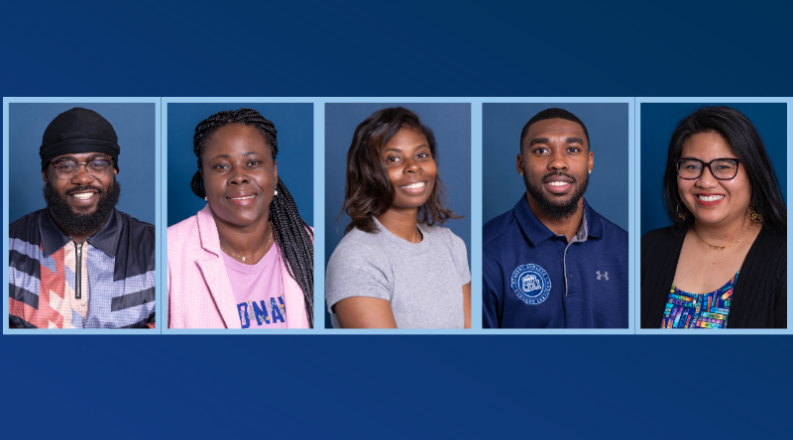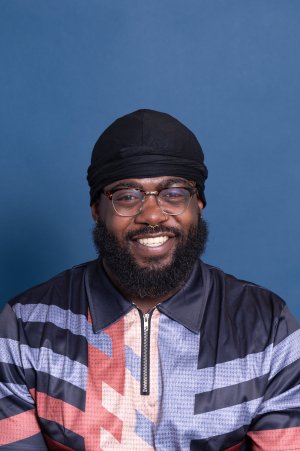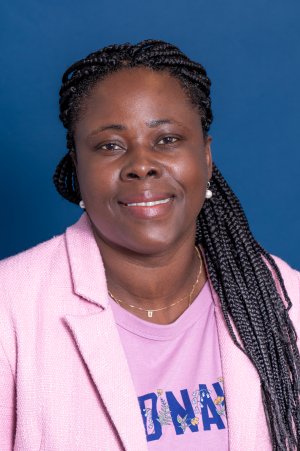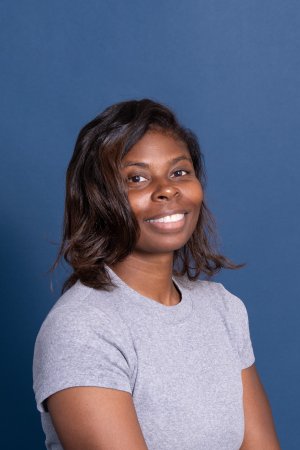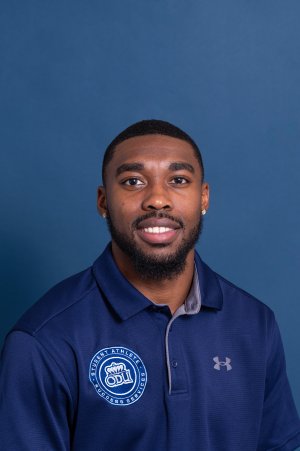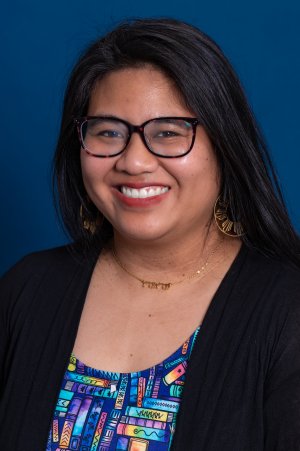By Kelsey Kendall
Old Dominion University’s Darden College of Education and Professional Studies welcomes its first cohort of Holmes Scholars, a diverse group of doctoral students with the goal of promoting diversity, equity and inclusion in PK-12, professional industries and higher education.
The inaugural cohort and their focus areas include Clarence Bumpas, counselor education and supervision: clinical mental health; Hilda Adu Gyamfi, special education; Natisha Harper, educational psychology; Deondre Johnson, higher education; and Christine Marie Turner, counselor education and supervision: school counseling.
The Holmes Scholar Program, which falls under the American Association for Colleges of Teachers Association, is designed to boost the education field by recruiting and supporting students from historically underrepresented groups who are on track for careers in higher education. Over the last 25 years, the national Holmes Scholar Program has worked to address equity and inclusion at all levels of education.
The program opened to applicants in November 2023. Its mission aligns with Darden College’s own goal of fostering a diverse community of faculty, staff and students and recognizing systemic barriers to achieving that goal.
“Our mission and values are at the core of this program,” Tammi Dice, dean of Darden College, said. "It is well established that education is enriched through a variety of perspectives and experiences. We aim to equip and mentor aspiring scholars from historically underrepresented groups, helping them pursue and secure future faculty positions and build a solid foundation to broaden learning opportunities for their future students.”
There were 10 applicants for Darden College’s first cohort and five spots available. Bumpas, Adu Gyamfi, Harper, Johnson and Turner committed to the three-year journey in which they will receive mentorship, peer support and professional development to prepare them for future faculty and leadership positions. The goal is to demystify academia and the culture of the academic life, providing the scholars with the necessary tools to succeed in a research environment.
Their experience and ultimate goals vary, much like their backgrounds.
Emily Goodman-Scott, professor and director of the Darden College Holmes Scholar Program, said as much as she hopes these students learn over the course of the program, she expects to learn, too.
“All of them are very committed and focused, talking about their research interests, their journeys, what they’ve done before and what they want to bring into this,” Goodman-Scott said. “Every time I’ve talked with them, I feel like I could pinch myself. I’m so grateful to get to know these folks, get to learn from them and have them learn from each other.”
Looking ahead, the program is poised for growth and sustainability. With plans to build a robust mentorship infrastructure, Darden College Holmes Scholar Program will continue to support future generations of scholars. Alumni are encouraged to stay involved by leading webinars, panels and conferences and offering mentorship to new cohorts, and Goodman-Scott said members of this group have already expressed interest in supporting future scholars in some way.
The scholars this year represent a wide range of backgrounds professionally and culturally.



